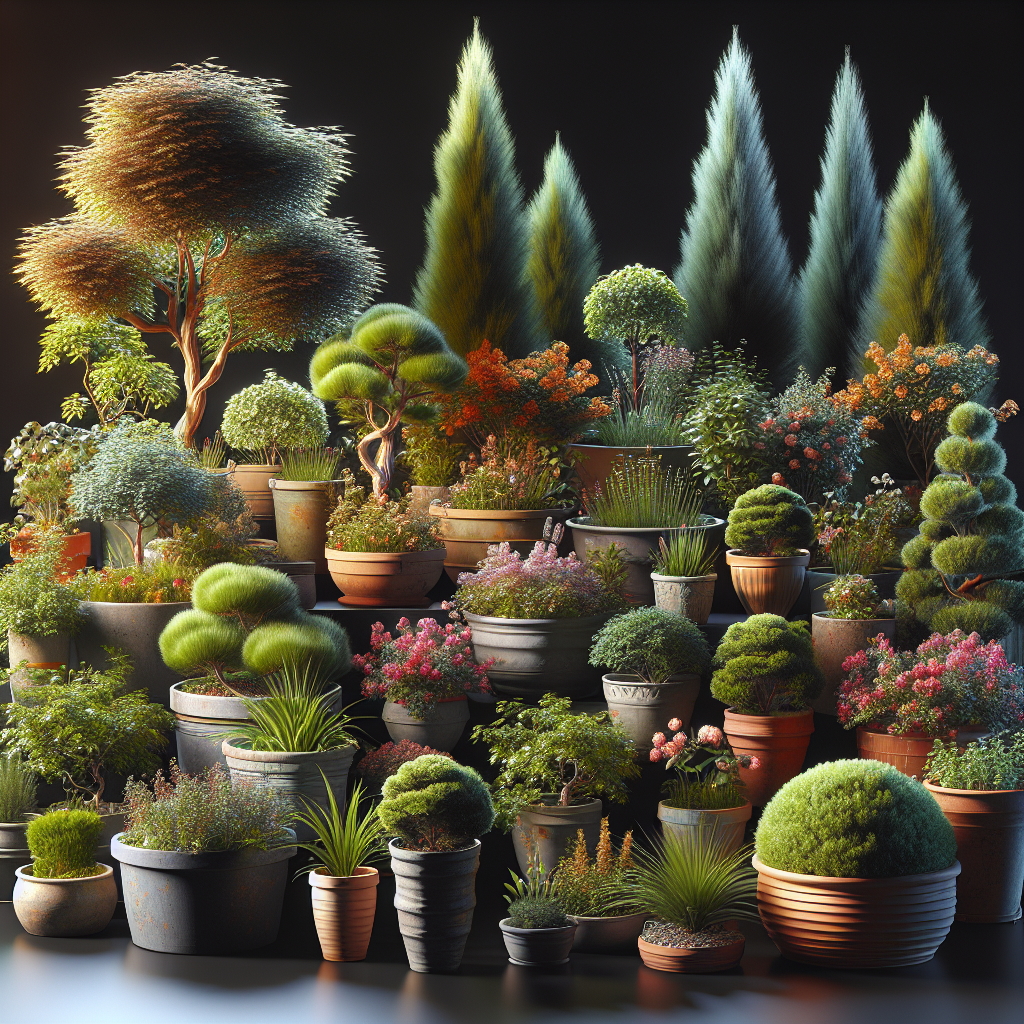Junipers are a versatile and attractive addition to any garden, but many people tend to overlook their potential when it comes to container gardening. In this article, we will explore the benefits of growing junipers in containers and provide tips on how to unlock their full potential.
Junipers are a genus of evergreen trees and shrubs that are known for their striking foliage and easy maintenance. They come in a variety of shapes, sizes, and colors, making them a popular choice for landscaping and gardening. However, growing junipers in containers can offer several advantages over planting them directly in the ground.
One of the main benefits of growing junipers in containers is the ability to control their growth and spread. Junipers are known for their aggressive root systems, which can quickly take over a garden if left unchecked. By planting them in containers, you can limit their root growth and prevent them from spreading uncontrollably.
Another advantage of container gardening with junipers is the ability to move them around as needed. Whether you want to create a focal point on your patio or balcony, or simply rearrange your garden layout, junipers in containers make it easy to relocate them without disturbing their roots.
Additionally, growing junipers in containers allows you to create unique and eye-catching displays. You can mix and match different varieties of junipers with other plants that complement their color or texture, creating a visually appealing arrangement that adds interest to your garden.
When it comes to selecting a container for your juniper plant, there are several factors to consider. First and foremost, make sure the container has proper drainage holes to prevent waterlogging, which can lead to root rot. Additionally, choose a container that is large enough to accommodate the size of your juniper plant and allow room for growth.
When it comes to soil selection for container-grown junipers, opt for a well-draining mix specifically designed for cacti or succulents. Junipers prefer soil that is slightly acidic and well-aerated, so avoid heavy clay soils that can hold too much moisture.
In terms of care and maintenance, container-grown junipers require regular watering during the growing season. Water deeply whenever the top inch of soil feels dry to the touch, but be sure not to overwater as this can lead to root rot. Fertilize your juniper plant with a balanced fertilizer formulated for evergreens once per month during the growing season.
Pruning is also important when it comes to maintaining healthy and attractive container-grown junipers. Remove any dead or diseased branches as needed throughout the year, as well as any overcrowded or crossing branches that can inhibit air circulation.
Pests and diseases are relatively rare on juniper plants but keep an eye out for spider mites or scale insects which can occasionally infest these shrubs. Treat infestations promptly with insecticidal soap or horticultural oil according to label instructions.
In conclusion, unlocking the potential of junipers through container gardening offers numerous benefits such as control over growth and spread, ease of movement, unique display options, and enhanced visual appeal. By following these tips on selecting containers, soil preparation, care and maintenance practices you can enjoy beautiful and healthy container-grown junipers in your garden year-round.













